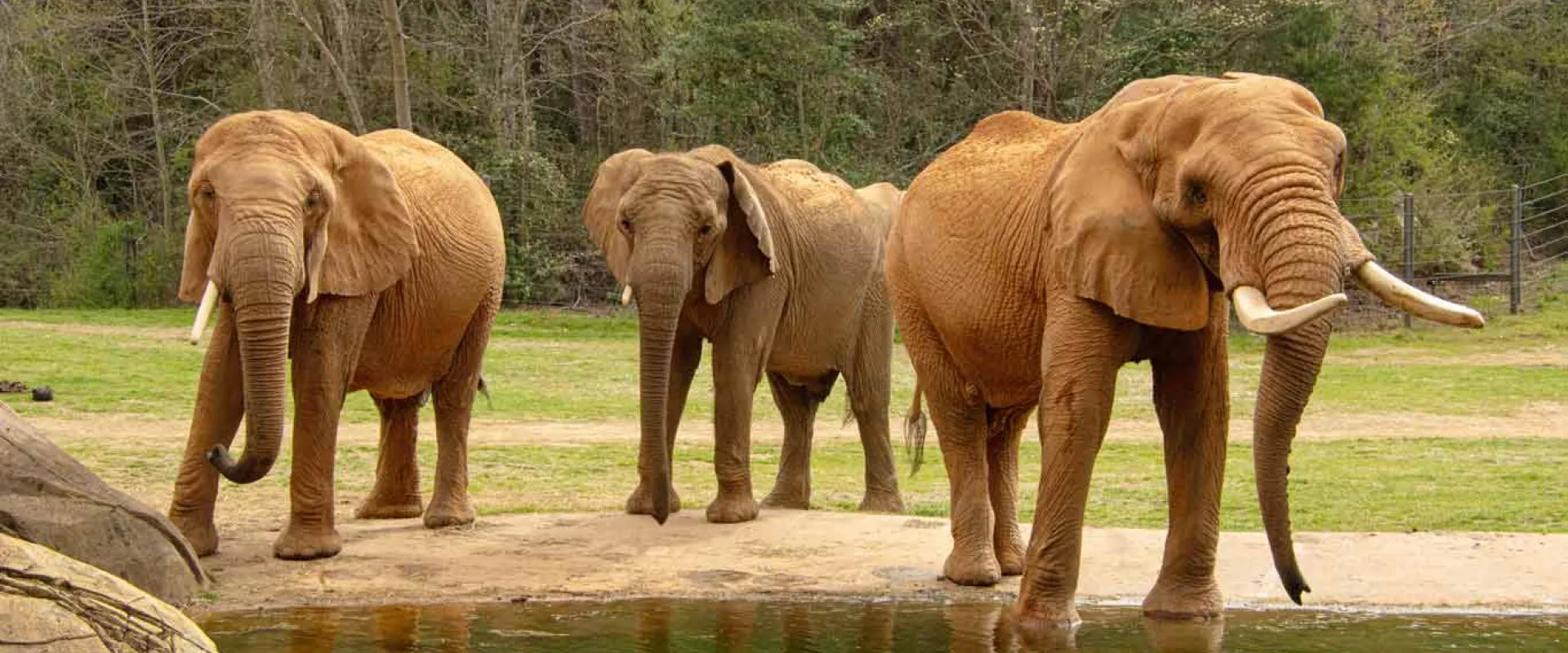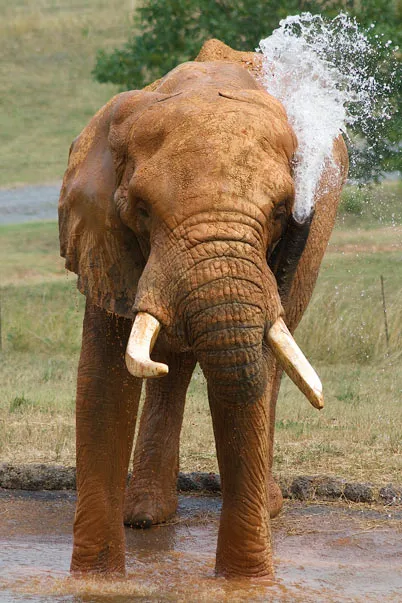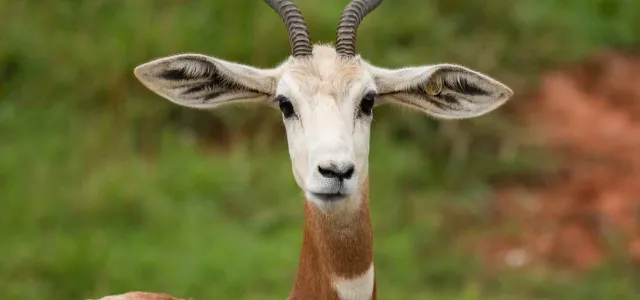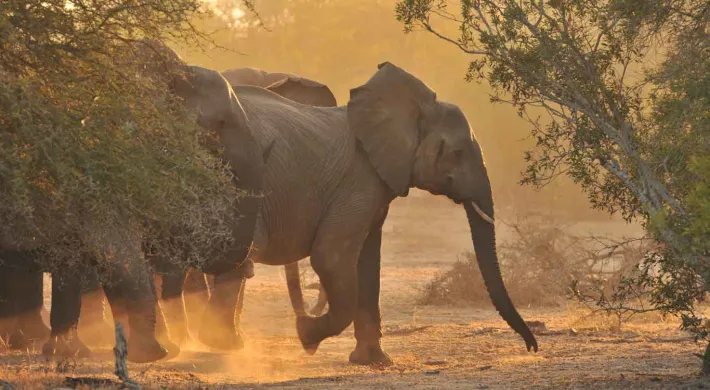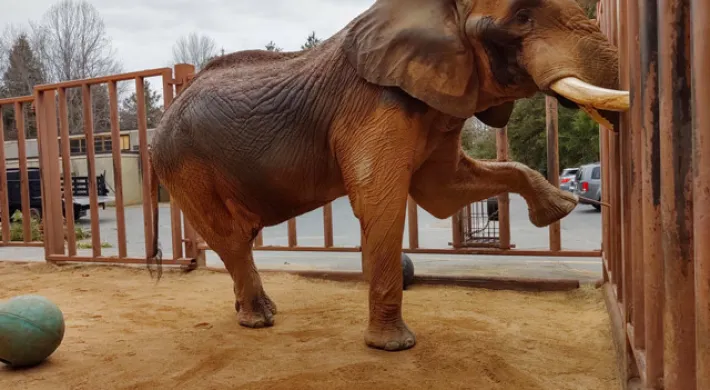Did you know elephant babies can weigh over 200 pounds at birth? Learn more about African elephants.
Building trust through training allows keepers to provide the physical, mental, and emotional care elephants need. Through training, the keepers can safely work on the elephant’s feet, treat minor wounds, and even give eye drops. This relationship also helps the animals work through difficult changes such as meeting new herd mates and coping with habitat changes. Ongoing research projects will ensure the elephants continue to receive the best care possible.
North Carolina Zoo has participated in elephant conservation in West Africa since 1998. One of the primary tools we use to protect the region’s elephants is satellite tracking collars. Once fitted with the special collars, elephant location data can be sent to any internet-connected computer in the world, from where data can be analyzed to mitigate human-elephant conflict, delineate new protected areas utilized by elephants, and increase our knowledge of elephant ecology. We are also actively involved in protecting Nigeria’s last elephant population by refining strategies to stop ivory poachers in their tracks. You can read more about the Zoo’s work on protecting Africa's wild elephants below, under related resources.
- Herds are dominated by an older female, and all members are related to this matriarch.
- Males are kicked out of the herd at puberty (12 years).
- Elephants communicate through grunts, purrs, bellows, whistles, and the well known trumpet.
- Elephants are good swimmers and use their trunks as snorkels.
- Vulnerable (VU)
